Our current fellows
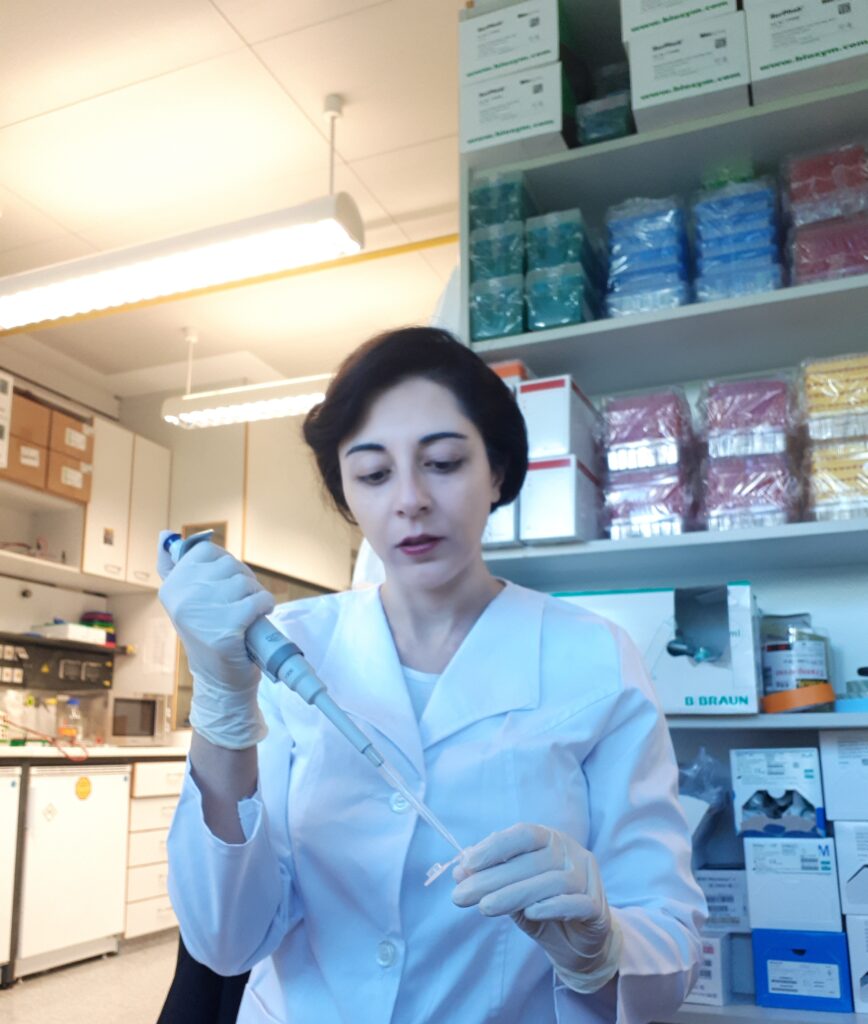
Behrokh Shojaie, Isfahan University of Medical Sciences, Iran
Fellow since March 2023
„My research in Prof. Christoph Klein’s lab focuses on rare immunological diseases known as inborn errors of immunity (IEI) and caused by genetic defects in various parts of the immune system that impair the body’s defense function against pathogens, including viruses, bacteria, fungi, and parasites. Immunoglobulins/antibodies in the blood are one of the crucial components of the human immune system and play a vital role in defending the body against pathogens. Any disorder in the production or function of immunoglobulins can lead to higher susceptibility to infections, autoimmunity, and other complications. Our research aims to identify the genetic mutations and molecular mechanisms involved in three patients with clinical manifestations of high levels of immunoglobulin M (IgM) or immunoglobulin E (IgE), two types of antibodies. Patients suffering from hyper IgM syndromes have impaired production of immunoglobulins except for IgM, making them highly vulnerable to infections. On the other hand, patients with hyper IgE syndrome have an elevated level of serum IgE, while the amounts of other immunoglobulins appear not to be affected. This condition leads to an increased susceptibility to various infections, allergies, and eczema. Given the heterogeneous nature of IEI diseases and the involvement of genetic and non-genetic factors in their development, we first examined the genetics of the three patients to determine if their immunological and phenotypic manifestations were due to pathogenic genetic mutations. Our genetic analysis (whole exome sequencing) revealed that two patients from the same family suspected of hyper IgM syndromes do not carry any known pathogenic genetic mutations related to hyper IgM clinical symptoms. Therefore, we will need additional multi-omics-based approaches to understand the cause of the disease in these patients. However, we were able to identify novel genetic mutations in one patient suspected of hyper IgE syndrome. We will further investigate the role and significance of these novel mutations in the development of hyper IgE syndrome by engineering cells carrying these mutations to evaluate their immune response changes and discover the molecular function of the mutated genes in IgE production. We hope the results of our research will help our patients receive better therapies, expand our knowledge of the human immune system, and find more efficient treatment strategies for patients with IEI diseases.“
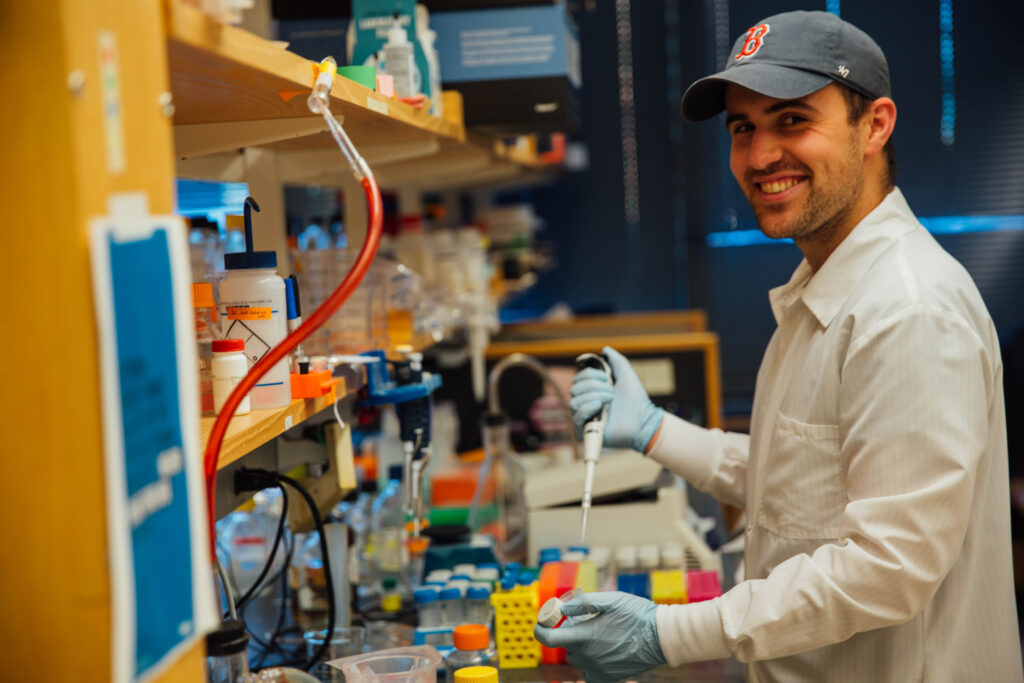
Titus Butzlaff, Research Fellow in Pediatric Oncology at Harvard Medical School, Boston, USA
May – Nov 2022
“ My current studies in the Lab of Prof. Wolfram Goessling focus on the development of hepatocellular carcinoma, Hepatoblastoma and Fibrolamellar carcinoma. We aim to understand the developmental mechanisms behind these diseases. Currently, our work is guided by two different theories and approaches. First, we want to understand the role which oxidative stress and endoplasmic-reticulum-stress play in the development of the hepatocellular carcinoma. Specifically, we want to assess which zones in the liver are affected by oxidative or ER-stress and how this could be quantified. Then we want to be able to predict whether patients who suffer from precursor diseases will develop cancer in the future. We asses these questions in a mouse model, in healthy and in affected tissue by performing single cell sequencing and analyzing certain markers which could predict the development. The results of my research here will hopefully help in prevention and diagnosis of hepatocellular carcinoma, Hepatoblastoma and Fibrolamellar carcinoma.“
Latest Activities
March 2023
As part of an international event series, the Dr. von Hauner Children’s Hospital of the Ludwig-Maximilians-Universität (LMU) organises the Klaus Betke Symposium every two years to draw attention to the importance of rare diseases and personalized therapies in childhood. The symposium is dedicated to Prof. Klaus Betke, who was a pediatrician, scientist and former director of Dr. von Hauner’s Children’s Hospital as well as the doyen of pediatric hematology.
After a long break the event could finally take place again on March 10 and 11, 2023. The focus of this year’s event was research for children with rare bone marrow diseases. The setting of the event provided an interdisciplinary platform for cutting-edge topics in pediatric medicine.
The event primarily targeted clinician-scientists as well as scientists in the fields of cell and molecular biology and data science. International speakers discussed their recent contributions to single-cell analysis of hematopoietic cells and new model systems for studying the differentiation of blood and immune cells. Big data processing and interpretation is also a key topic for individualized precision diagnostics as well as the development of personalized therapies and was therefore covered in detail.
On the topic of „Congenital defects of bone marrow function – new insights from single cell analysis“, we heard a string of fascinating lectures with the latest research findings, some of which have not yet been published, given by top-class and internationally leading scientists, all of them pioneers in their respective fields.
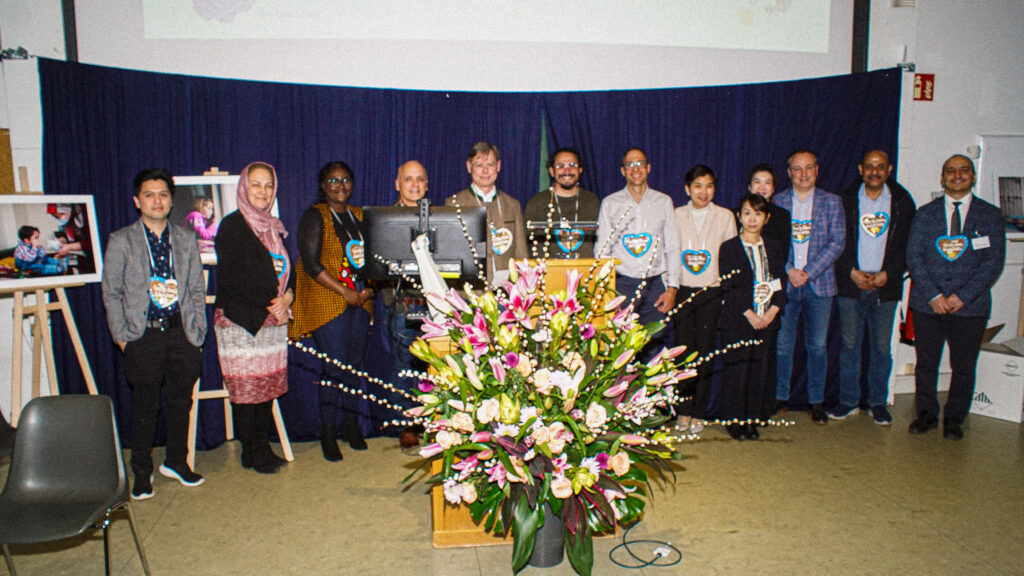
Topics such as hematopoietic stem cells in the bone marrow niche, the development of leukemia, the modeling of rare diseases of the bone marrow using so-called organoids, as well as the Human Developmental Cell Atlas project and the importance of artificial intelligence in the clinical diagnosis of hematological diseases were also considered and discussed. The Klaus Betke Symposium thus provided „high-profile presentations in close succession in a fireworks display of the most exciting science,“ as one participant in the event put it.
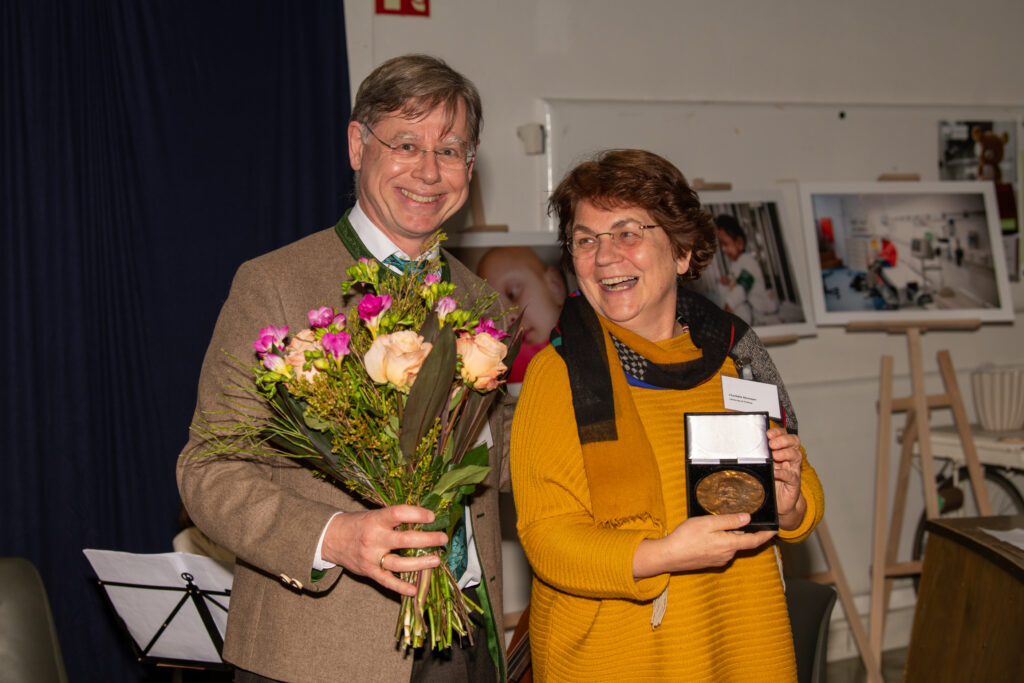
In the evening, the August von Hauner Medal for special achievements in pediatric hematology was awarded to Prof. Charlotte Niemeyer from the Albert-Ludwigs University of Freiburg for her work on research into myelodysplastic syndrome in childhood. Her tireless commitment to young scientists and her encouragement to keep initiating and contributing new ideas and food for thought to improve the situation of children with hematological diseases – even across borders – was emphasized in the laudatory speech by Prof. Christoph Klein.
The second day was characterized by insights into the scientific and clinical everyday life of our international partner institutes of our global Care-for-Rare Alliance. Experts from the field of rare pediatric bone marrow diseases as well as hematologists and immunologists from all over the world came to Munich to develop new perspectives of a science that goes beyond national borders.
Children with rare diseases depend on global networks. On the one hand, research into their diseases is important so that new precise diagnostic methods can be developed; on the other hand, an understanding of these rare diseases is of great importance for new precision medicine strategies – both for rare diseases and for common diseases such as leukemias.
The conference met with exceptionally high interest; with 150 participants from 14 different countries, the lecture hall of the Dr. von Hauner Children’s Hospital was very well attended. Munich thus once again became visible in a national and international perspective as a „hub“ of biomedicine for children and adults with diseases of the blood.
Please find more impressions on our social media channels.
Feedback:
„I am very grateful for your hospitality and kindness during my stay in Munich. The symposium was very exciting and insightful and I thoroughly enjoyed sharing ideas with such a diverse group of intellectuals. I hope we can continue to build upon this relationship we have developed and I hope the project will be a huge success. Thank you once again.”
„It was fantastic to see you all again. Thank you very much for making our stay as wonderful as always. (…) The program is always a plus. The work that you have accomplished is remarkable.“
“It was a terrific meeting. I learnt a lot. (…) very professional. I enjoyed the music played by children, it was a nice touch. Thanks so much for the invite.”
This year’s symposium was kindly supported by the Else Kröner-Fresenius Foundation and the Boehringer Ingelheim Foundation.
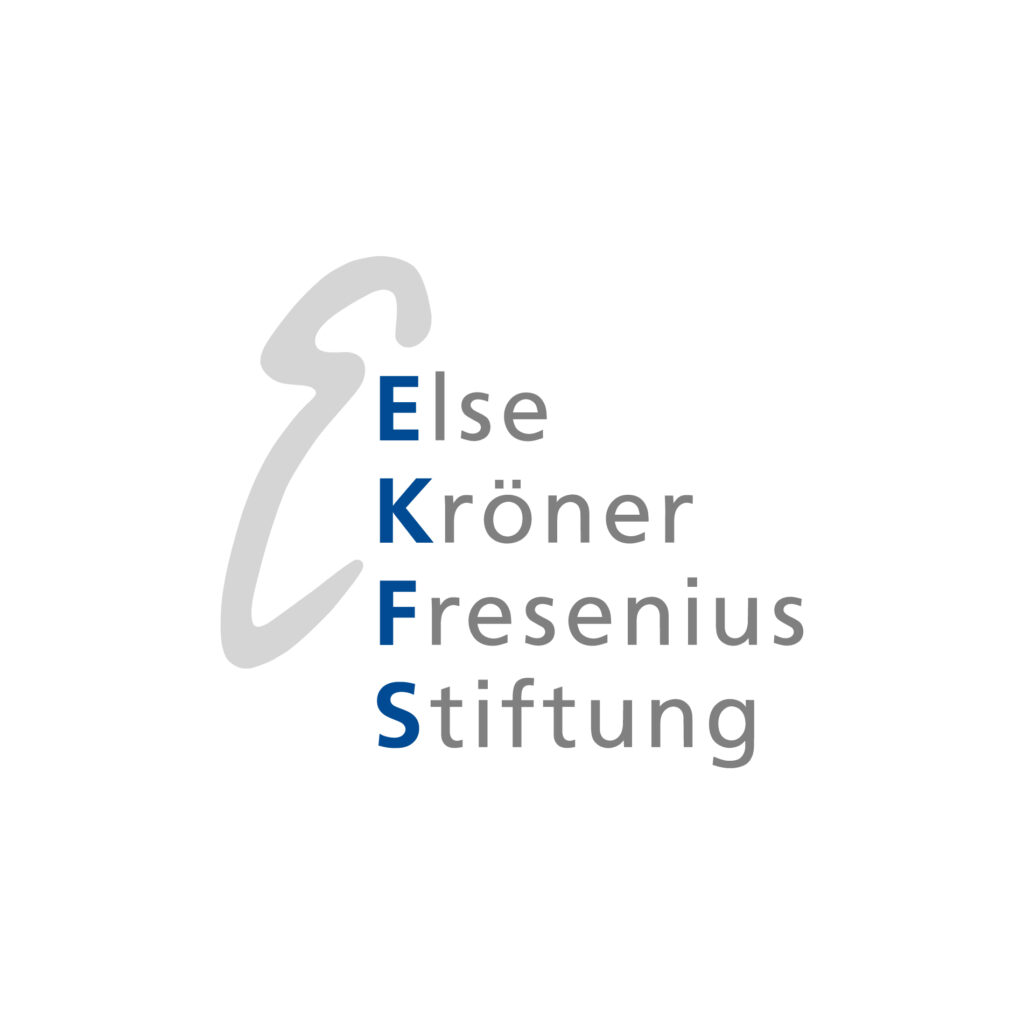

Care-for-Rare has strengthened and extended its engagement in South-East Asia during an important series of events in November this year:
3rd International PID Meeting „From Bench to Bedside“: Care-for-Rare Global Alliance Educational Seminar in Kuala Lumpur in cooperation with IPOPI.
November 2023
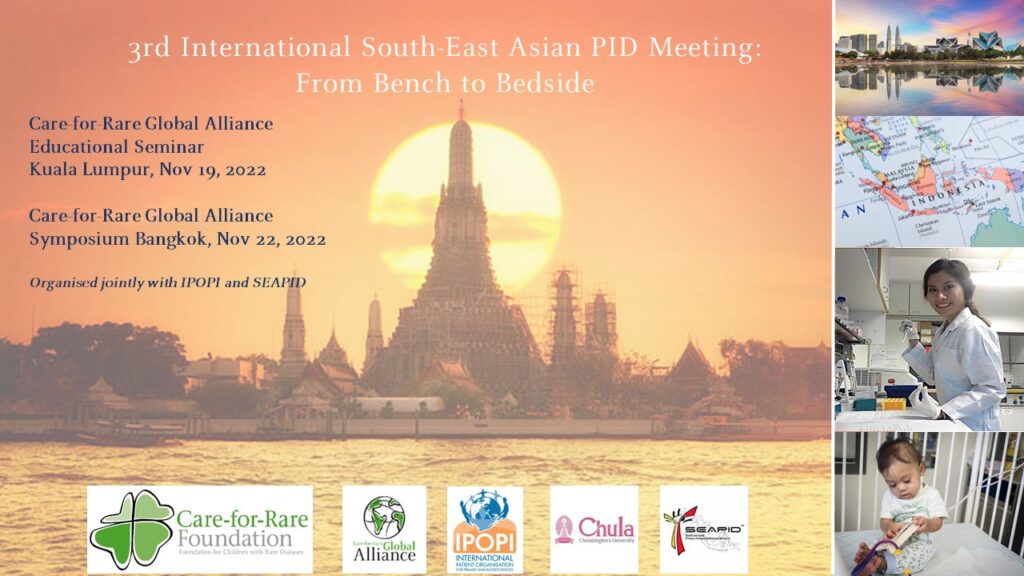
During the„3rd international South-East Asian PID-Meeting: From Bench to Bedside“ which offered several educational activities for physicians and scientists from South-East Asian countries we have once again extended our network of immunologists and doctors interested in the field of Primary Immunodeficiencies (PIDs) in a common effort with IPOPI, the International Patient Organisation for Primary Immunodeficiencies.
The first activity of this event series – our Care-for-Rare Global Alliance Educational Seminar – was embedded in the 4th regional Asian PID doctors and patients meeting in Kuala Lumpur, Malaysia on November 19th and 20th. We have welcomed participants from Malaysia, Indonesia, Cambodia, Thailand, the Philippines, Japan, Nepal, Bangladesh, India and South Korea.
Thanks to the Care-for-Rare Fellowship Program two young doctors from Cambodia and Thailand were able to attend the meeting. In this conference the audience got insights in state-of-the art of PID diagnosis and treatments in Asia, optimal PID management, the many faces of Inborn Errors of Immunity, the importance of global alliances in PID research, advanced therapies: the future of BMT in Asia as well as the importance of data collection and registries. Experts from Europe and Asia shared their knowledge in a joint effort during several scientific lectures and panel discussions on topics such as „Global Alliances in practice: How regional doctors and scientists can benefit – the example of SEAPID and APSID“, „APSID/SEAPID regional registry update: Where are we and where would we like to be?“ and „Newborn screening for rare diseases – real life experiences and future opportunities“. The official program was followed by several networking opportunities and further discussions about how to improve the situation of children with rare diseases and their treating physicians in this part of the world.
The meeting was a follow-up meeting of our 1st and 2nd international PID meeting in Bangkok in 2015 and 2017 where one of the main outcomes was to lay the foundation for a dedicated South-East Asian PID Consortium (SEAPID) which has started its work back in 2015 and is now working efficiently on a day-to-day basis which has already resulted in a joint publication
Please click here to see the official scientific program.
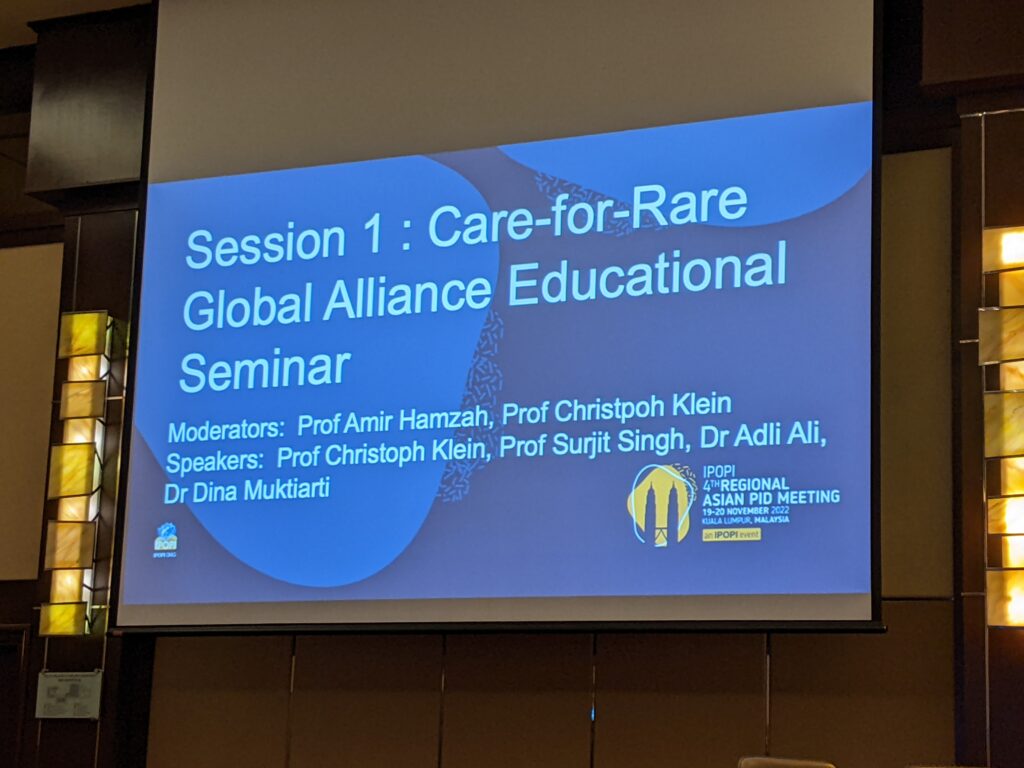
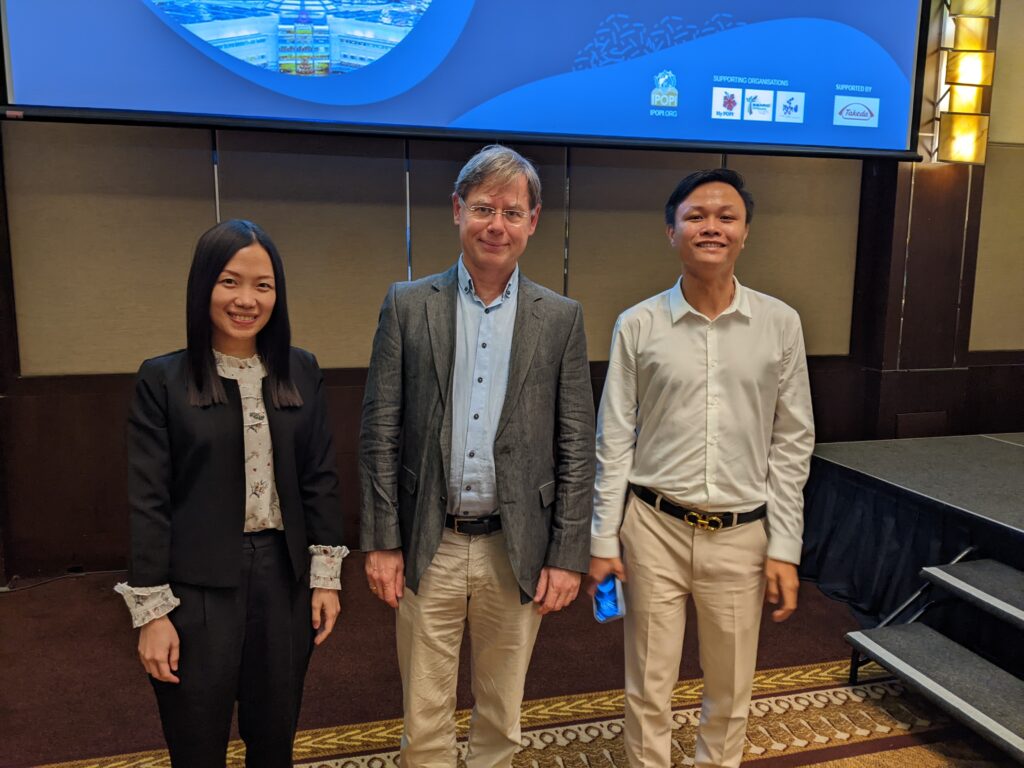
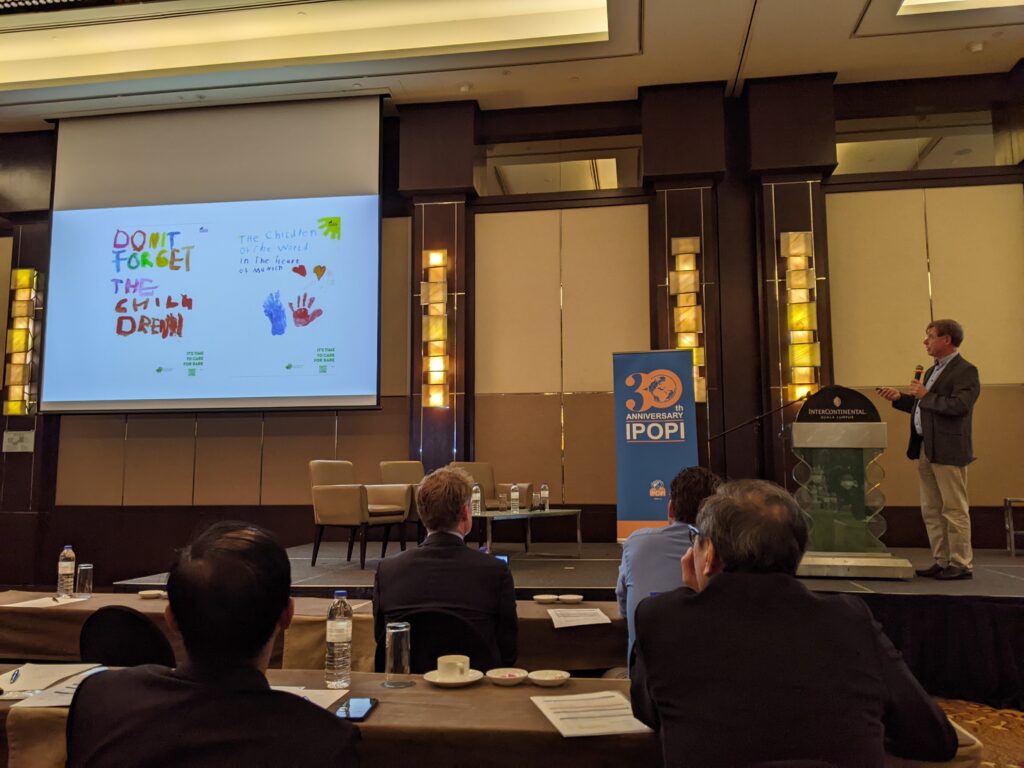
Kick-off of the first Care-for-Rare Knowledge Hub for Precision Medicine of Rare Immunological Disorders in Bangkok:
This educational series set the perfect stage for the Kick-off of the first Care-for-Rare Knowledge Hub for precision medicine of rare immunological disorders in Bangkok. This pioneer project – a regional educational hub focused on immunological disorders- located at the Excellence Center for Genomics and Precision Medicine, Chulalongkorn University Bangkok will have a flagship function as expertise center of rare immunological diseases for surrounding regions and countries in South-East Asia. The specific goal of the hub is to bring about an improvement in the situation of rare disease patients of an entire region by offering a boost of knowledge development in the field of rare immunological diseases. Physicians and scientists in the area will be able to participate in training and education programs at our local expert center, receive advanced training in temporary placements in our labs in Munich, establish joint research projects, and also send patient samples to our specialized C4R Centers for analysis and interpretation of gene mutations and correct diagnosis. Through this project, we aim to train the future trainers and young talents in the field of immunology in South-East Asia in order to make the mission of Care for Rare – that every child should have access to adequate medical care, regardless of their ethnic, religious, or financial background – a reality. The opening of the C4R knowledge hub was celebrated in a festive inauguration ceremony where the lab sign with the logo was handed over to the Dean of the Medical Faculty of Chulalongkorn University and to our long-standing cooperation partner, Prof. Kanya Suphapeetiporn who is the Head of the Excellence Center for Genomics and Precision Medicine at King Chulalongkorn Memorial Hospital.
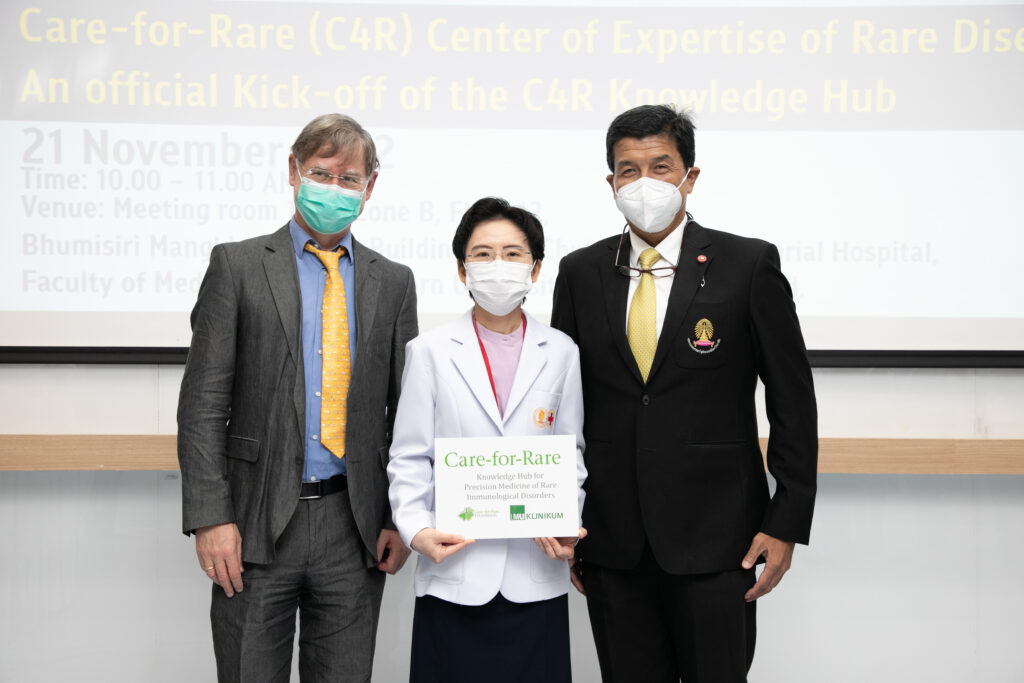
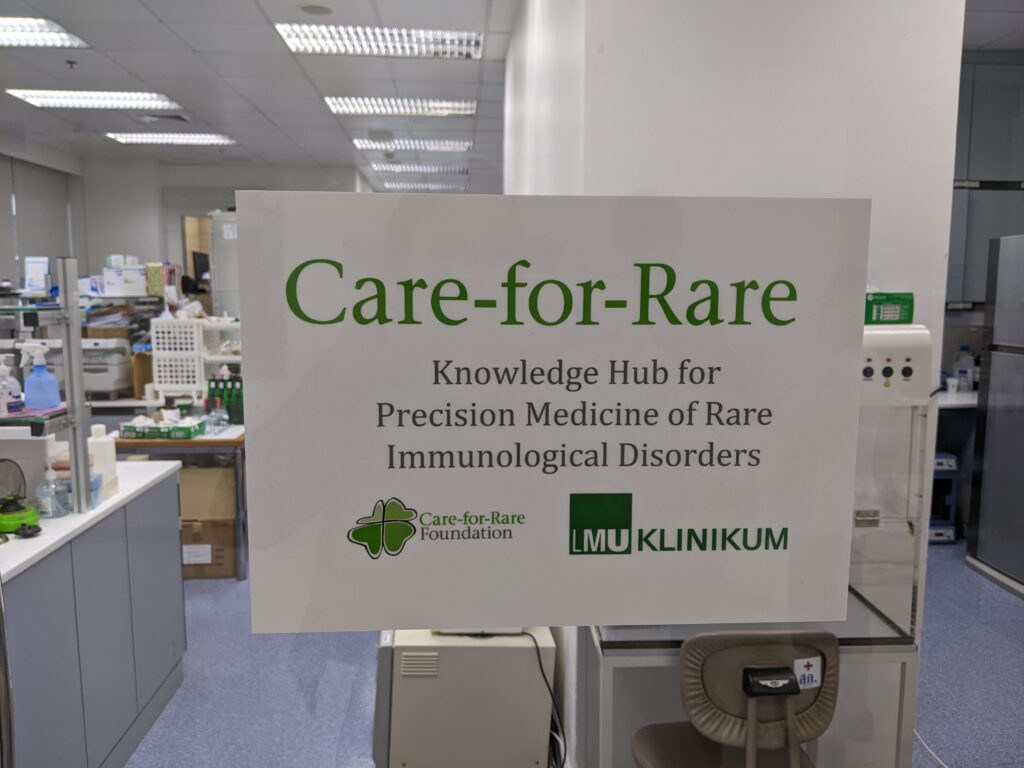
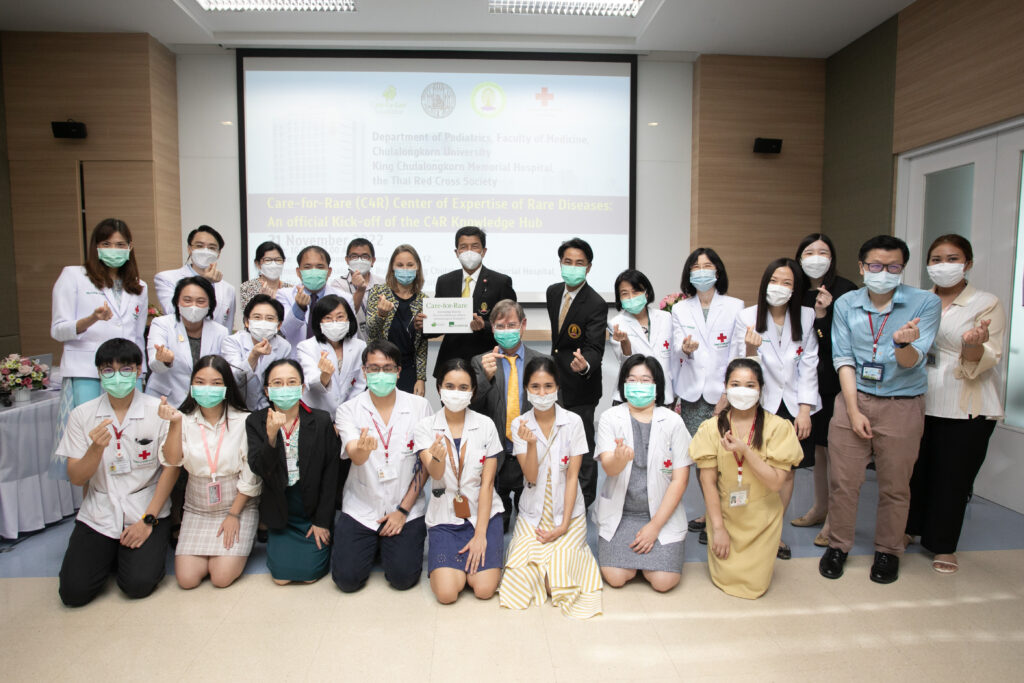
Care-for-Rare Global Alliance symposium with keynote lecture by Prof. Christoph Klein followed by Thai national PID meeting
During the second activity Care-for-Rare held a Global Alliance Symposium in Bangkok on November 22, 2022 on the topic of „Precision diagnostics in rare immune-mediated diseases“ within the Thai national PID Meeting organized by IPOPI and Chulalongkorn University of Bangkok. Care-for-Rare’s Founder Prof. Dr. Christoph Klein held a cutting-edge scientific lecture in front of an audience of more than 150 Thai students, graduates and physicians and scientists. During his lecture he encouraged the participants and young talents to go the extramile during their daily work and to look for the rare instead of the common. He also highlighted the importance of an interdisciplinary approach of physicians and scientists from various disciplines when treating patients with an unclear diagnsis. The event was organized in a hybrid way so that many participants could also follow online. The lecture was followed by a case-study on a successful example of how international collaboration paved the way to a correct diagnosis through genetic testing and following adequate treatment of two siblings with very early onset inflammatory bowel disease. Thanks to an impressive joint effort from physicians and scientists from Europe and Bangkok these two children could be healed and now live a healthy life. This symposium – which was mainly addressed to young doctors and scientists from Thailand – was also a joint effort of C4R and IPOPI as well as Chulalongkorn University of Bangkok and offered an excellent selection about Hot Topics in PID including several Case Studies presented by young fellows from different hospitals and institutes in Thailand.
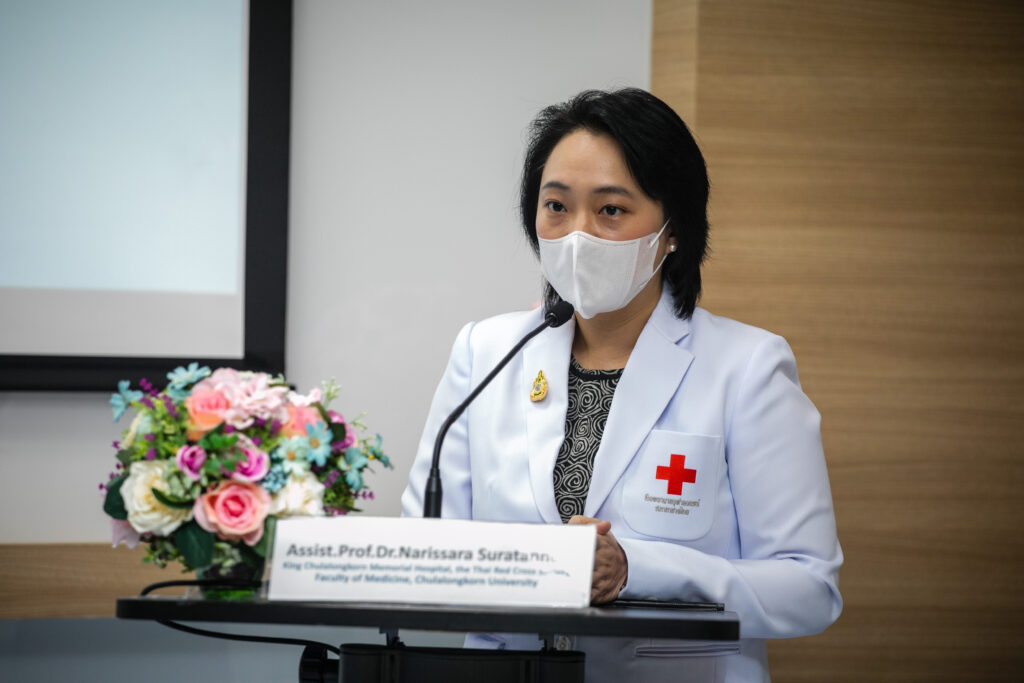
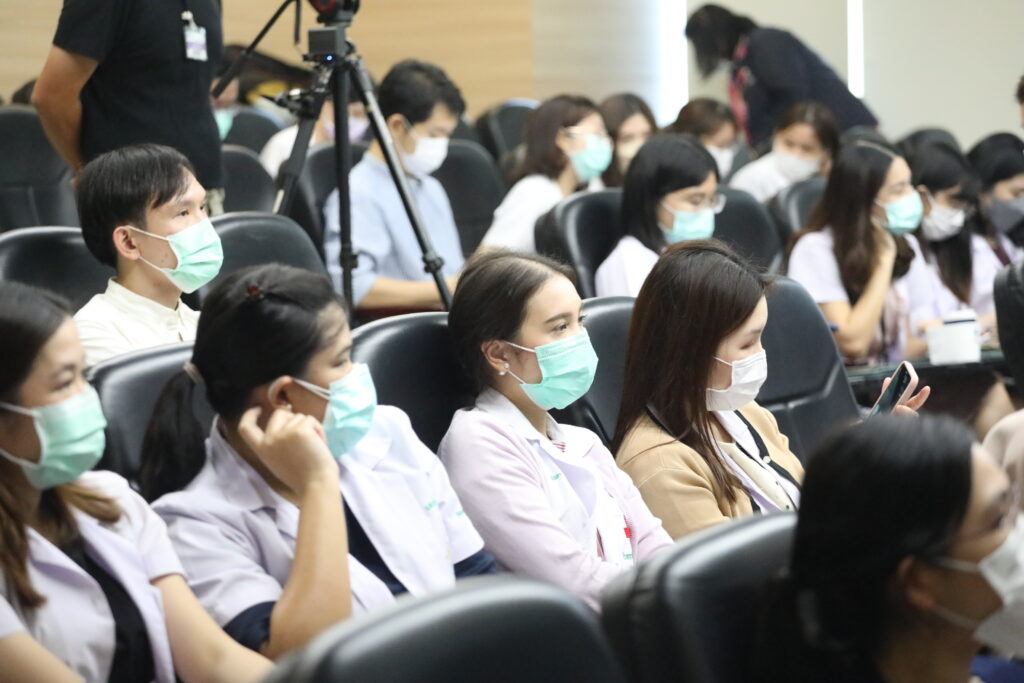
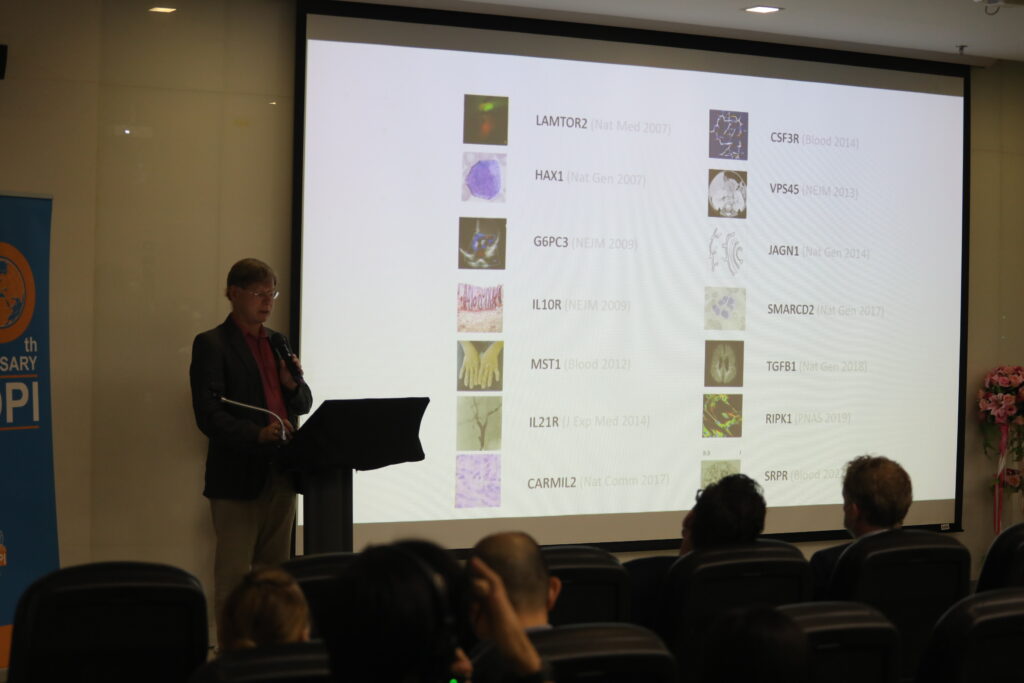
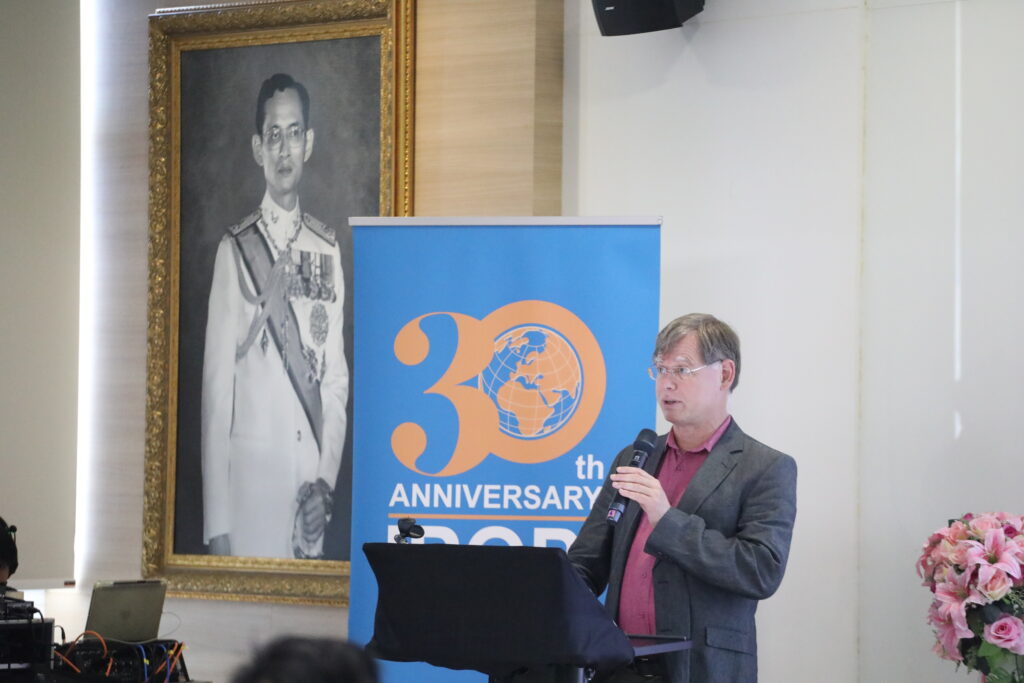
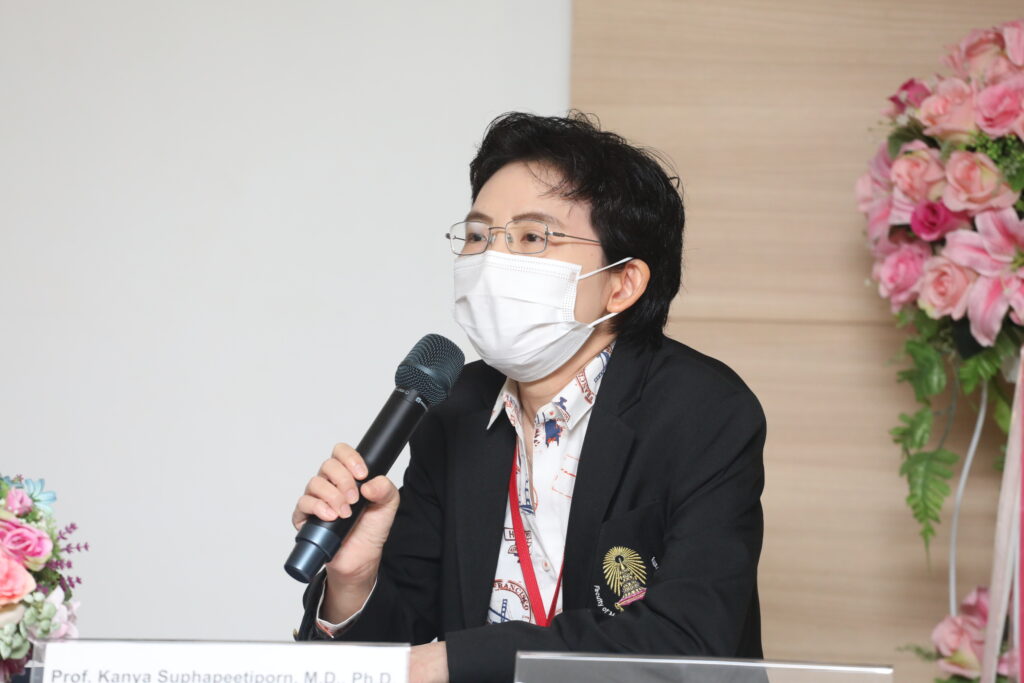
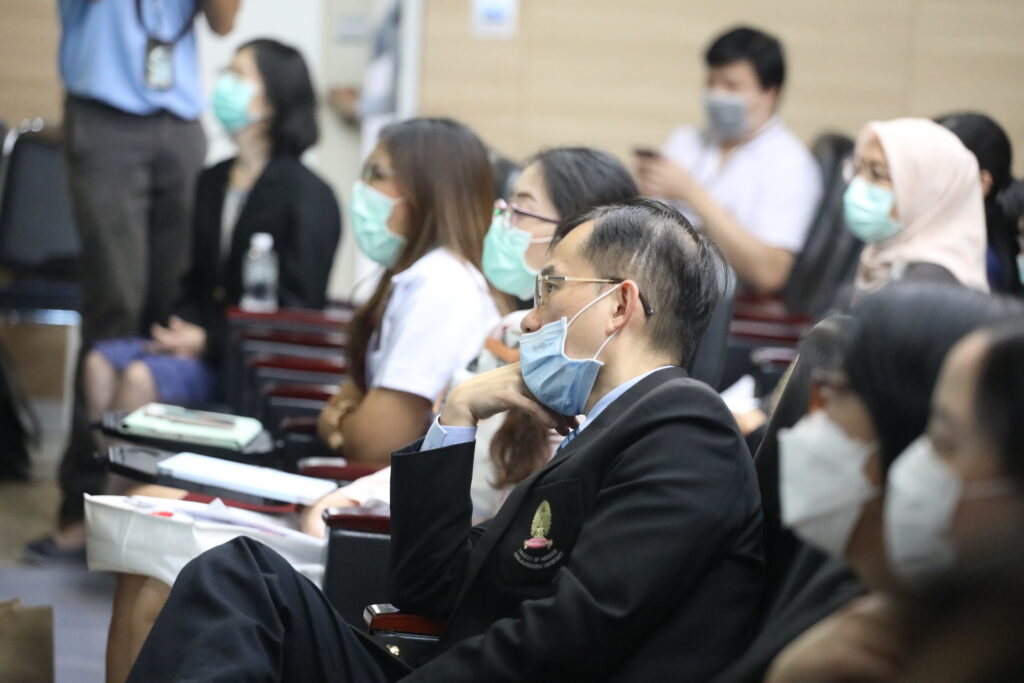
This event series again demonstrated the very fruitful and cooperative common efforts of our partner institutes, the patient organisations and C4R to advance the current status quo of discovery and treatment of Inborn Errors of Immunity in the whole region of South-East Asia and to educate future key personell from various disciplines for an improvement of the situation of children with rare diseases and their families.
For detailed information on the scientific program click here.
Both of these educational activities are follow-up meetings of our PID conferences in 2015 und 2017 organised jointly with IPOPI.
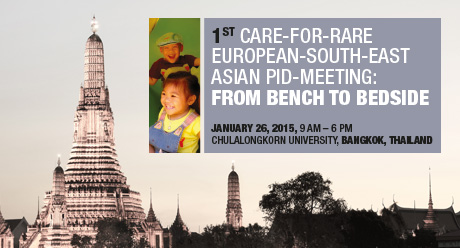
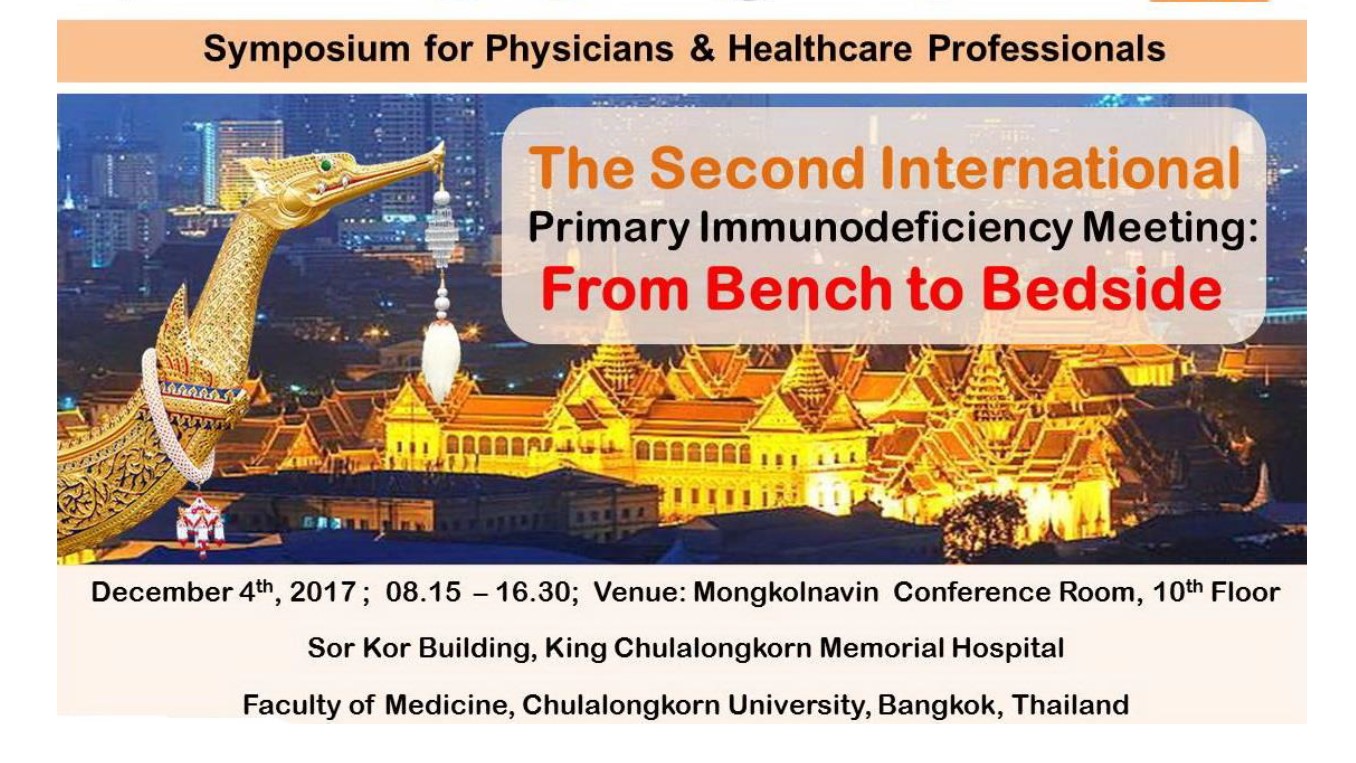
Upcoming Activities
There are currently no upcoming activities.


